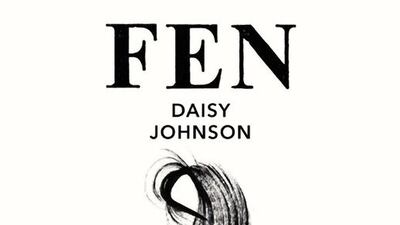Daisy Johnson’s debut publication is composed of a series of linked short stories that take place in the marshlands of eastern England.
This sprawl of coastal terrain, often known as the Fens, has frequently attracted the attention of contemporary novelists (one thinks of Graham Swift's Waterland, of Peter Kingsnorth's The Wake). They are attracted by its strangeness: by the richness of a landscape that seems to confound the distinction between land and sea, that hosts horizons so vast as to seem calculated to inspire feelings of introspection, uncertainty, of terrible portent. Things don't work normally here.
Nor do they work normally in Johnson's Fen. This is a world in which the peculiarity of the environment is manifest both in the lives and the natures of its inhabitants, and in the lineaments of the non-natural structures that have been made there.
In the book's opening tale, Starver, we encounter a young woman who, having decided to starve herself, slowly assumes the form of an eel. In its successor, Bloodrites, two young women who have recently returned from Paris lure men back to their Fenland house with the intention of eating them.
In A Bruise the Size and Shape of a Door Handle, the young Salma finds herself living in a house that has become sentient, and grows possessive of her and jealous of her lovers – so much so that it eventually consumes them by way of weird mechanisms of absorption: "Margot's left arm was swallowed to the elbow in something that once was wall and now was loose, flabby. With a dry gasp her legs vanished to the knee."
And in a later story, Birthing Stones, we are introduced to an apparently normal woman who, while waiting in a restaurant for the arrival of a date, is shown to be something other than fully human, crafted out of Fenland muds: "she would not tell him about being more field than human ... On hot days she heard the internal crackings of her baked insides, felt the make-up run from her clay skin."
The stories in which these compelling inventions feature are also stylistically arresting. Johnson is possessed of the rare ability to trust in the power of language, and this allows her to trust in the force and the fecundity of her voice.
She can summon characters into being and fill them with life with astonishing concision and vigour (you are told relatively little about the figures who populate her book, but somehow you feel you know them intimately), and she is able to capture the world in constructions that are unusual, precise and often beautiful.
A woman swimming underwater is brushed by an uncannily powerful fish and feels “a thin lance of electricity through her leg”; an unwanted catch is described as “a wriggling usurper”; a muscular man has “elbows pistoning out from his body”; a woman emerging from a pool deposits “water coming off in a sheet”; handwriting appears as “dense, tight little letters against the sick white of the paper”; characters go in search of “a length of air against the dull iron of living”. And when bad weather is approaching? “A storm was unbuckling itself from somewhere.”
Such particularity of perception is rare and refreshing, and this sense of invigoration is intensified both by Johnson’s commitment to placing women at the heart of her stories (so much so that, at one stage, a lighthouse keeper is described as “wommaning” her radio), and by the attentiveness she brings to the business of imbuing their narratives with elegance, pattern, shape.
The result is an assembly of imaginings that linger in the mind as dark miracles and shadowed celebrations, and as intensely resonant reckonings with our hidden ways of being.
Matthew Adams lives in London and writes for the TLS, The Spectator and the Literary Review.

